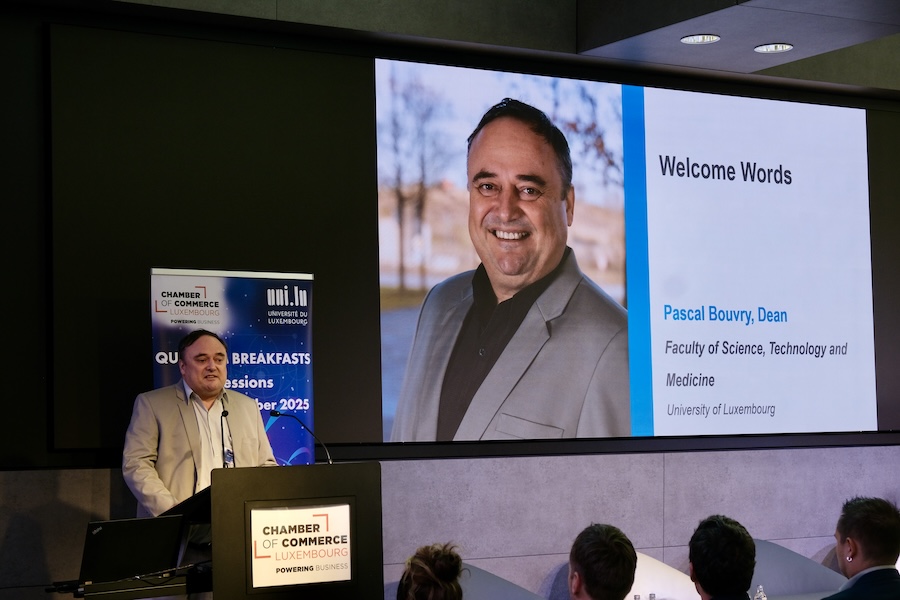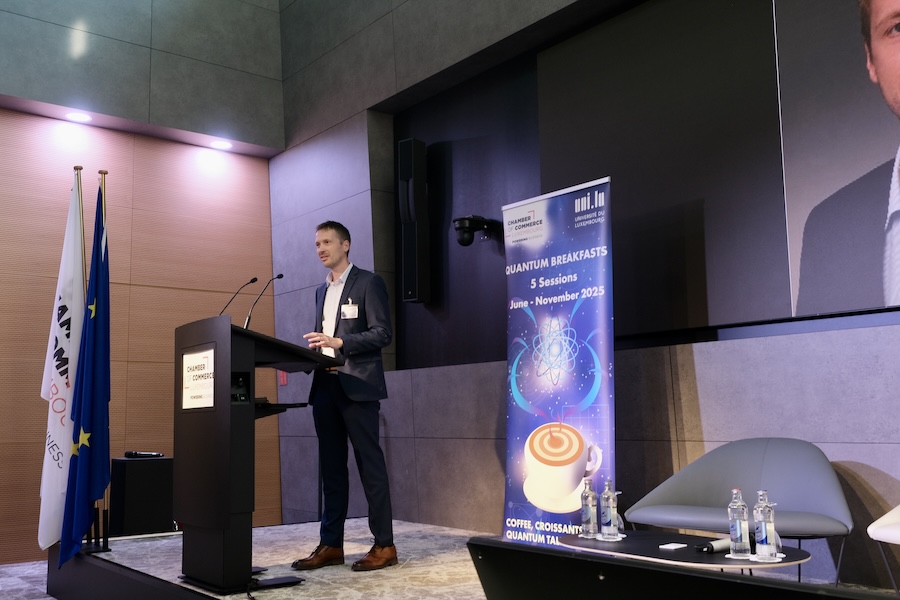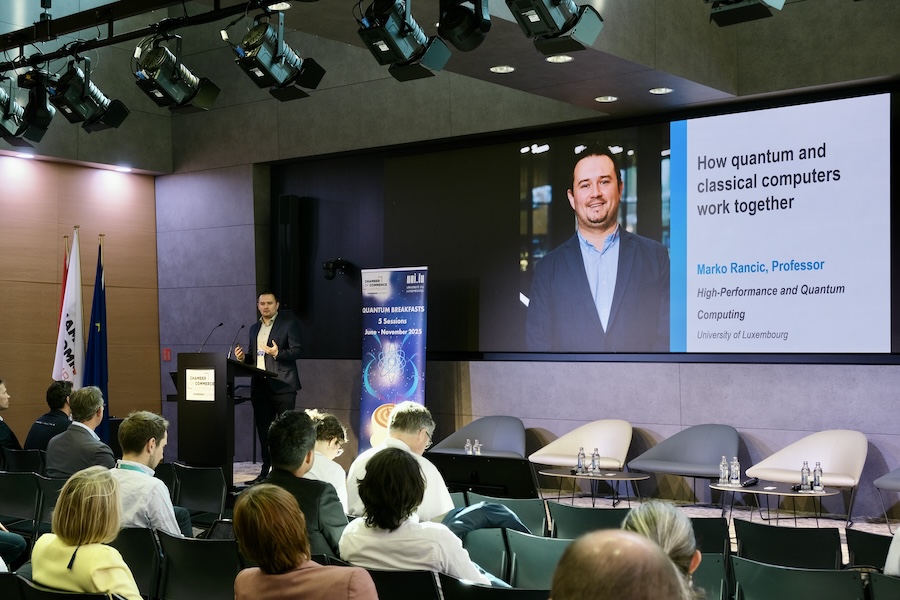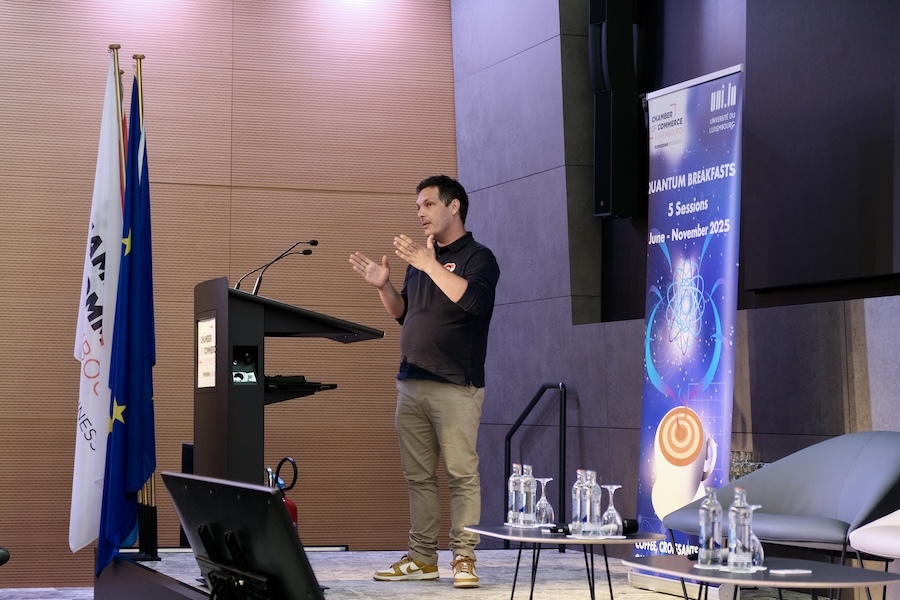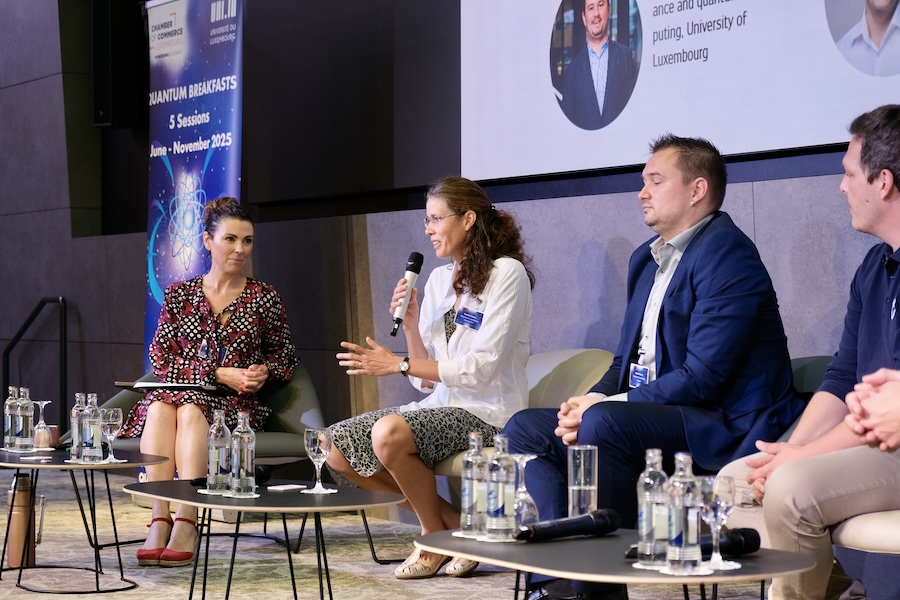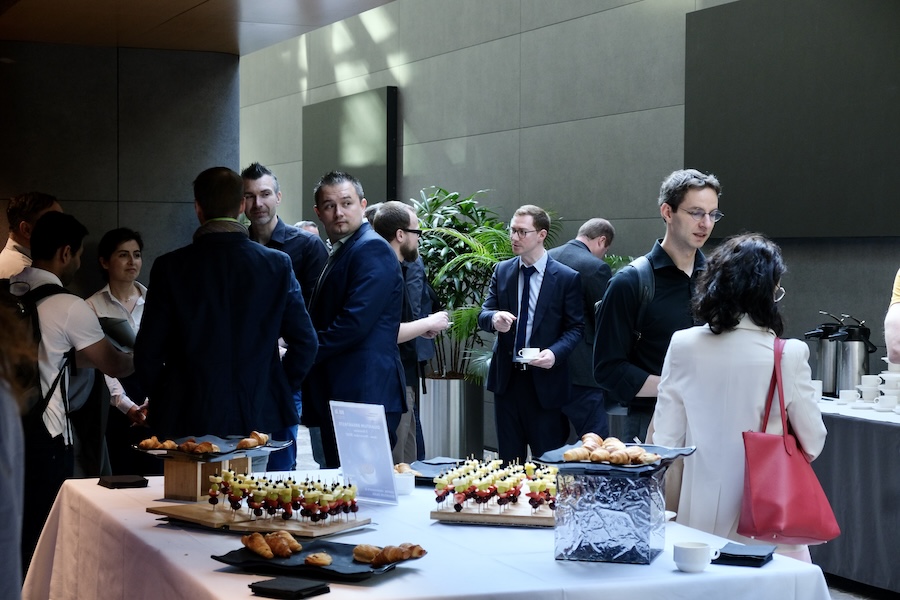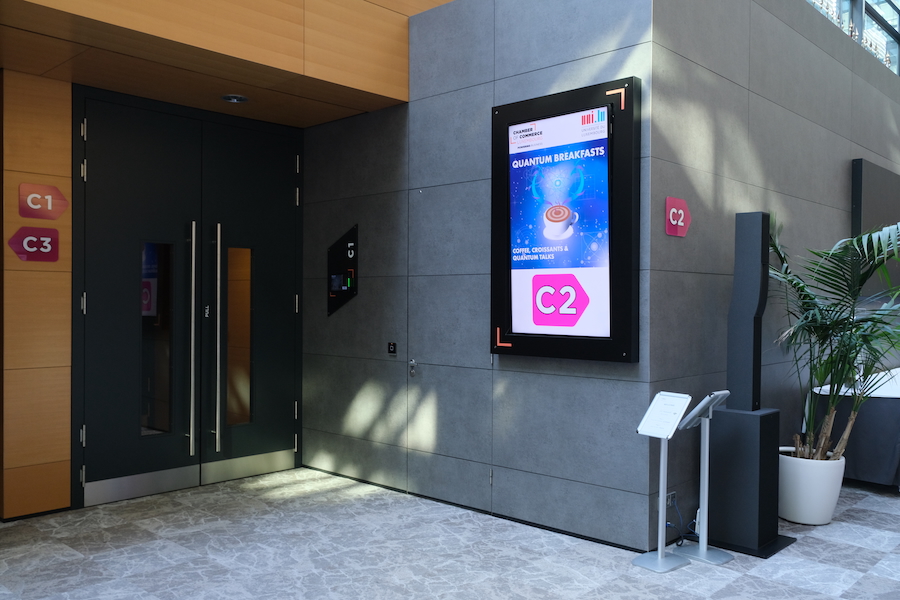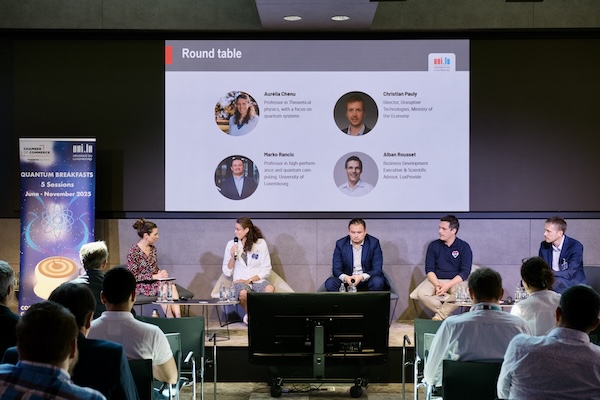 (L-R) Lisa Burke; Aurélia Chenu, University of Luxembourg; Marko Rancic, University of Luxembourg; Alban Rousset, LuxProvide; Christian Pauly, Luxembourg Ministry of the Economy;
Credit: Steven Miller, Chronicle.lu
(L-R) Lisa Burke; Aurélia Chenu, University of Luxembourg; Marko Rancic, University of Luxembourg; Alban Rousset, LuxProvide; Christian Pauly, Luxembourg Ministry of the Economy;
Credit: Steven Miller, Chronicle.lu
On Thursday 12 June 2025, the University of Luxembourg held its first Quantum Breakfast event at the Luxembourg Chamber of Commerce in Luxembourg-Kirchberg.
The event, the first in a series of seminars dedicated to developments in the field of quantum computing, featured a panel discussion on quantum technologies and research and a round table discussion on the challenges within the field of quantum research, involving guests from Luxembourg’s science and computing community.
The event began with speeches from the Dean of Faculty of Science, Technology and Medicine (FSTM) at the University of Luxembourg, Pascal Bouvry, and Director for Disruptive Technologies at Luxembourg’s Ministry of the Economy, Christian Pauly.
Pascal Bouvry welcomed guests and attendees and talked of Luxembourg’s place in progressing quantum research and developing quantum technologies. He said “The idea is really to check how to make the bridge between science and industry. I think that in Luxembourg we are at the right place for that because the government is working on this topic and the university is working closely with the industry. So, we have a real chance to make it and make a real difference.”
Christian Pauly talked of Luxembourg’s commitment to quantum research and the importance of collaboration and partnerships between public and private entities, to facilitate knowledge sharing and scale innovation. He remarked: “The government recognises the importance of long-term investment in scientific excellence. I think, as a small and dynamic country, we are well positioned to bring all the different stakeholders together and make efficient use of the resources.” He added: “Ultimately, building a strong and interconnected quantum ecosystem in Luxembourg will be crucial to harnessing the full potential of quantum technologies.”
There then followed a presentation from Professor in high-performance and quantum computing at the University of Luxembourg, Marko Rancic. He provided a brief overview of how quantum computing works, explained how quantum and classical computers work in tandem, provided a comparison between existing technology that uses quantum computing and the newer technologies currently under development and detailed a number of industrial use cases which can benefit from quantum technology, such as pharmaceutical and material science. He said: “You go from drug discovery to the design of batteries for electric cars, to design of new lasers, so on and so forth. These are all the use cases where you expect to use quantum computing.”
Business Development Executive and Scientific Advisor at LuxProvide, Alban Rousset, then gave a presentation on the development of quantum processing units (QPUs), graphic processing units (CPUs) and the quantum and computing ecosystem in Luxembourg and the speed of change within the industry. He remarked: “In 2000, we were literally rendering pixels. In 2025, we are manipulating qubits. I don’t think we're just preparing for the quantum future - we are actually all in it.”
After a short break, the event continued with a round table discussion which included contributions from Professor in theoretical physics at the University of Luxembourg, Aurélia Chenu, Christian Pauly, Marko Rancic and Alban Rousse and was moderated by presenter Lisa Burke. The topics discussed included Luxembourg’s place as part of quantum collaboration within the European Union (EU), how to generate economic returns on the investments made into Luxembourg’s quantum infrastructure, the complexities of data sovereignty and data security and the challenges in attracting the required talent to Luxembourg.

